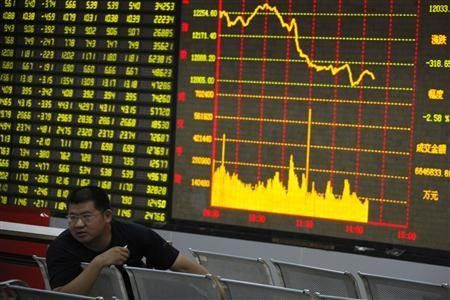Dollar, Stocks Slip on Debt Fears

The dollar fell on Tuesday as U.S. lawmakers remained deadlocked over raising the nation's debt ceiling to avoid a devastating default, while U.S. and European shares also declined.
Unless lawmakers reach a deal to raise the $14.3 trillion ceiling by Aug. 2, the U.S. would face the prospect of a default on some of its $9.6 trillion government bonds outstanding.
In a televised address, President Barack Obama warned that this would be a "reckless and irresponsible outcome," but he gave no indication that a compromise was imminent.
Weakness in stocks earlier weighed on crude oil prices, while gold hovered near a record high hit in the previous session as investors looked to the precious metal for safety.
The U.S. currency hit a record low against the Swiss franc of 0.7997 on trading platform EBS and fell to a four-month low near 77.883 yen, approaching a record low of 76.25 set in March.
"The market is getting more nervous about the debt ceiling issue," said You-Na Park, currency strategist at Commerzbank in Frankfurt. "If the market was really starting to price in the possibility of a default, the dollar would be losing more than what we saw this morning."
Against a basket of currencies, the dollar .DXY fell 0.6 percent. The euro rose 0.8 percent to $1.4498.
U.S. stocks were mostly lower, pressured by worries about debt talks and weakness in 3M Co. and United Parcel Service Inc., which both reported earnings.
The Dow Jones industrial average was down 60.85 points, or 0.48 percent, at 12,531.95. The Standard & Poor's 500-stock index was down 2.15 points, or 0.16 percent, at 1,335.28. The Nasdaq Composite Index was up 2.10 points, or 0.07 percent, at 2,844.90.
"The level of confidence that a deal will be done is starting to weaken based on last night's speeches and all of the analysis that's gone on since last night," said Hugh Johnson, chief investment officer of Hugh Johnson Advisors LLC in Albany, New York.
European stocks fell 0.3 percent after weaker-than-expected results from BP and UBS.
World stocks as measured by MSCI world equity index rose 0.3 percent, while emerging stocks rose 0.7 percent.
Investors so far appear to have done little to prepare for a default or a cut in the U.S. triple-A credit rating. Many are still clinging to the hope that lawmakers will eventually reach a deal. It is also nearly impossible to insure against what is considered a low-probability event, especially given the lack of alternatives and the depth of the market, analysts said.
The cost of insuring the U.S. against default stood around 57 basis points, nearly half the March 2009 peak.
The credit default swap curve is nearly flat with one-year CDS at 56.5 bps. This in itself reflects investor jitters, but it is not the kind of pricing normally seen when investors expect an imminent default.
TREASURY AUCTION
Fears that the government will run out of cash by Aug. 2 if lawmakers do not come to an agreement fueled anxiety about appetite for this week's $99 billion of new debt supply, starting with a $35 billion auction of two-year notes later Tuesday.
Still, Treasuries prices rose in recent trading, as a decline in the U.S. stock market renewed a bid for bonds and investors dipped their toes back into bonds after recent losses spurred by the default fears.
The benchmark 10-year note last traded up 8/32 in price for a yield of 2.97 percent.
Bund futures rose 13 ticks. Spanish and Italian government bonds fell after concerns rose over whether a new bailout plan for Greece would stop sovereign debt problems from spreading to other countries.
In the commodities market, U.S. crude recouped early losses to last trade at $99.25 a barrel, up 5 cents on the day. Spot gold last traded around 1,611 an ounce.
"Clearly there are substantial tail events to hit the market, so the appeal of gold will still be very strong," said Michael Lewis, head of commodity research at Deutsche Bank.
© Copyright Thomson Reuters 2024. All rights reserved.





















